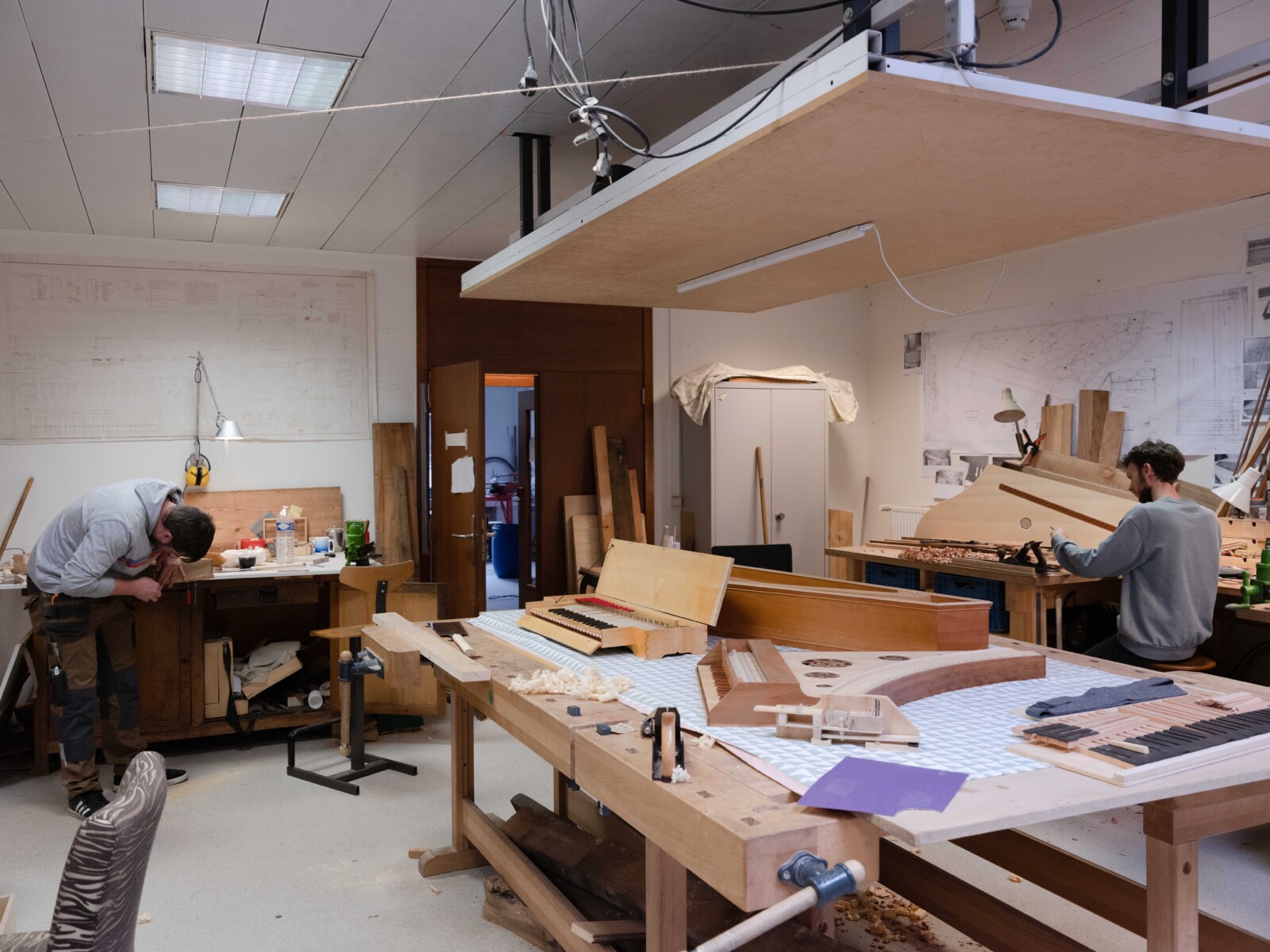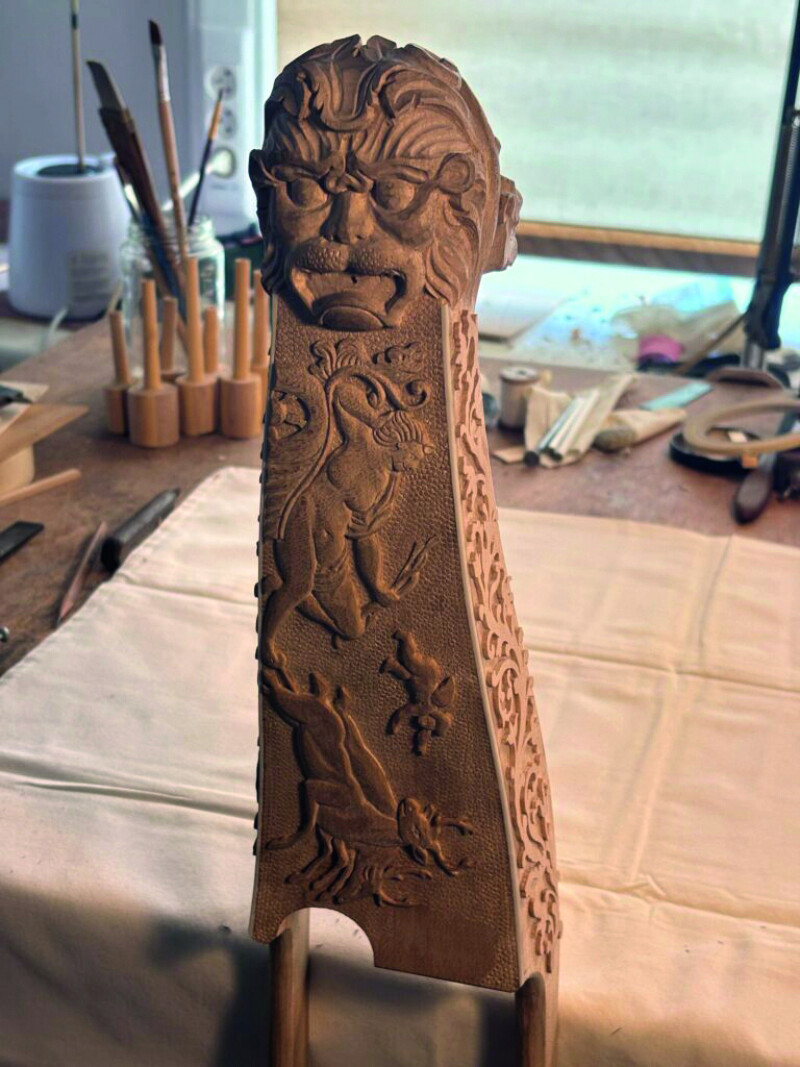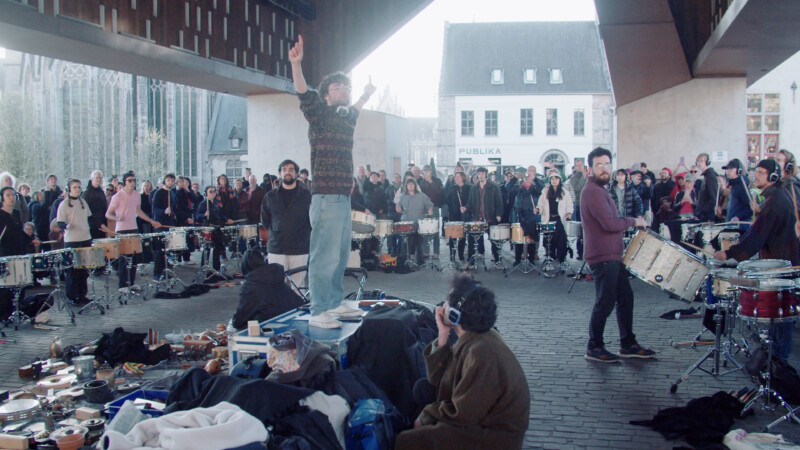musical instrument making
graduating option musical instrument making
3+2 years
English master
read more about the programme
What does the instrument maker do?
As an instrument student, for your research and construction activities, you will thoroughly analyse historical sources and tracts, iconography and professional literature. Naturally, you will also study and document instruments from private and public collections. In doing so, you will use both traditional methods (surveying, plan drawing, photography) and the latest technologies, such as X-ray and CT scans, optical 3D scanning and digital endoscopy. Ultimately, all this data is used to build your reconstruction.
A great deal of perseverance, a sense of precision, a passion for music and instruments and a certain degree of manual dexterity are crucial to complete your own course within the programme. We do not expect specific prior training (e.g. in woodworking). Our studios are located right in the old centre of Ghent, close to the Conservatorium.
From felling and planing to finished instrument
In the first two undergraduate years, you will learn the use of hand tools and the various building techniques, by building both test pieces and relatively simple musical instruments from a variety of disciplines, such as hakkebord, baroque guitar, dance master violin or cister. From the third year, you can then specialise in historical string, plucked, woodwind or keyboard instruments. In addition, theory subjects such as art and music history, instrument theory, technical drawing, materials science, chemistry and acoustics form an equal component within the curriculum. In the master's years, you choose your own research theme, on which you then work for two full years in project form. Several musical instruments emerge from this project, based on the chosen theme.

Experimental instrument building is also covered, as an initiation in instrument conservation and restoration. Making music is important throughout the curriculum. You learn to play musical instruments from the very beginning, and the instruments you have built yourself are also tested, weighed and weighed by conservatorium students during the academic year. During the final exams, your instruments will be assessed by professional, renowned musicians and established builders.
The instrument maker's field of work
The course lays a foundation for a wide range of functions and professions. The multi-layered and interdisciplinary nature of the field of instrument making implies an extensive and diverse range of subjects. Graduates from our direction find their place in existing instrument-making workshops or have started their own. You will acquire a multitude of practical, organisational, communicative and reflective competences with which you can go to various cultural and scientific institutions. Some of our alumni now work as curators in instrument collections of museums, others became researchers or teachers. The instrument faculty maintains close contacts with museums and organisations in the field such as the Musical Instrument Museum (MIM) in Brussels, the museum Vleeshuis / Klank van de Stad in Antwerp, the Alamire Foundation in Leuven and other research groups at home and abroad. Within the programme, researchers are also active in research projects and doctorates in instrument making.
teachers
study programme
* Vanaf juni raadpleegbaar via hogent.be/studiefiches.
enrolment
register for admission test bachelor musical instrument making
register for orientation test master musical instrument making
If you want to apply for an academic bachelor's, you must first pass an artistic admission test. To enter the master's programme, you will take part in an orientation test. These are organised several times per academic year.
In addition to a Dutch-language master, this study path also has a fully English-language counterpart. Every academic year, dozens of foreign students start in the English master's at KASK & Conservatorium.
There are no differences in curricula, competencies, learning outcomes or organization between the English-language programmes and their Dutch-language counterparts. English-speaking candidates holding a master’s degree in music can also go in for the advanced master contemporary music or one of our postgraduate programmes.
Don’t hesitate to contact the study and learning track counsellors with your questions.
quality assurance
KASK & Conservatorium's programme in music has been assessed against the internationally recognised standards of MusiQuE in 2022.
26, Nederpolder
9000 Ghent
credits
- photo: Joselito Verschaeve
- video: Julie Daems
- Atelier musical instrument making, open day 2023, photo: Lukas Neven









